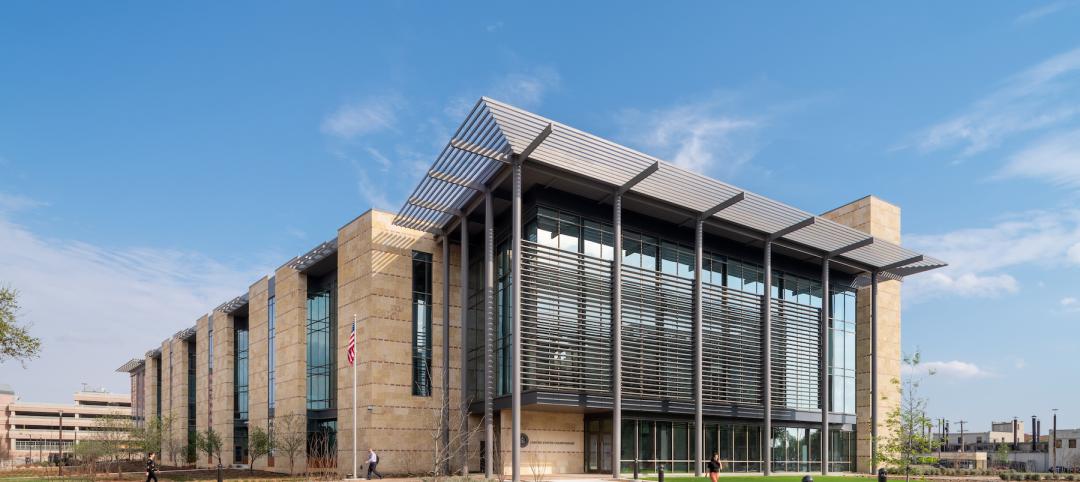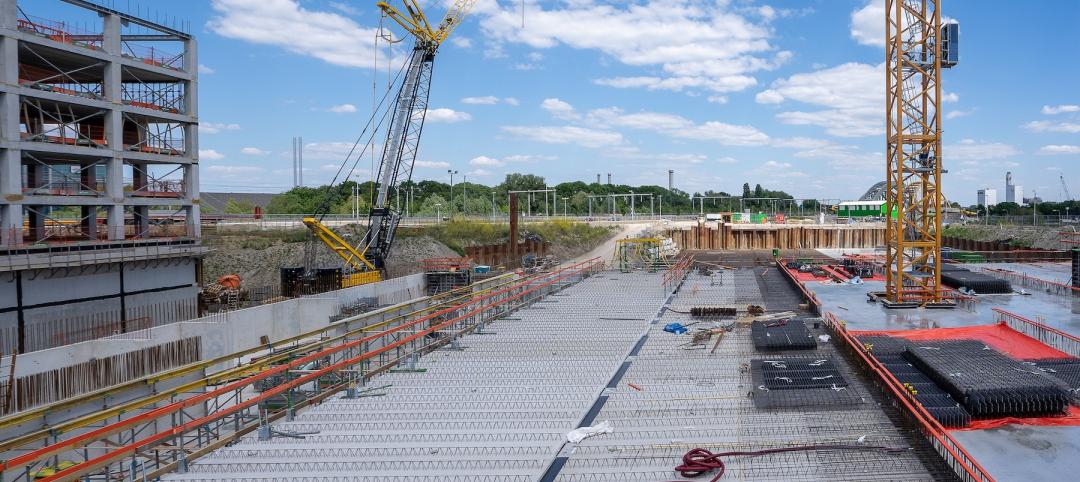The American Institute of Architects (AIA) and the American Institute of Architecture Students (AIAS) committed to timely passage of the National Design Services Act (NDSA), which will give architecture students the same relief from crushing student loan debt, which is already granted young lawyers, doctors and others – in return for community service.
The bipartisan legislation, H.R. 4205, was introduced by Rep. Ed Perlmutter (D-CO) and co-sponsored by Rep. Greg Meeks (D-NY), Rep. Gwen Moore (D-WI) and Rep. Dennis Ross (R-FL).
“Millions of young people aspire to help their communities build a better future – but a lack of opportunity and the crushing cost of education hold them back,” said AIA CEO Robert Ivy, FAIA. “As a result, the design and construction industry faces a severe shortage of talent at exactly the moment America needs to rebuild for the future.
“We commend Congressman Perlmutter for recognizing this issue, for introducing the NDSA and for enlisting his colleagues on both sides of the aisle to work for its ultimate passage,” Ivy said. “I promise that they will have the full resources of the AIA as well as the architecture student community behind them when more than 600 AIA members convene in Washington, D.C. next week as part of the AIA’s annual grassroots conference.”
"The National Design Services Act will help promote sustainable economic development and jobs by ensuring aspiring architects are able to gain valuable experience while giving back to their communities designing public projects such as schools, health clinics, housing facilities and libraries,” said Rep. Perlmutter. “In return, the bill will alleviate some of the barriers new students face as they pursue their dreams in architecture."
“There is no shortage of enthusiasm in our membership for passing this bill,” said Joshua Caulfield, Chief Executive Officer of AIAS. “And we intend to leverage that enthusiasm to the hilt as we go forward and call on our members of Congress.”
Student debt is one of the most critical issues facing the economy – not to mention the next generation of design professionals. Roughly 40 million Americans owe $1.2 trillion in student-loan debt, an amount that surpasses every other type of household debt except mortgage debt. Architecture student graduates come out of school with approximately $40,000 in student loan debt, ranking architecture as one of the disciplines with the highest loan balances in the country.
The NDSA eases this burden by providing loan assistance to architecture students and recent graduates who contribute their design services to underserved areas. The bill would authorize the Department of Housing and Urban Development (HUD) to create a program allowing architecture students to work with Community Design Centers in exchange for assistance with their student loans.
As a result, communities will receive a broad range of architecture services that may not have otherwise been available, and architecture graduates will be induced to stay in the profession.
At a recent meeting of AIAS Milwaukee-Wisconsin where AIA National staff discussed the proposal, architecture students immediately began organizing a phone bank for students to call their members of Congress to urge them to support the bill.
One young architect, Evan Litvin of Philadelphia, has launched an online petition that enlists the support of architects nationwide for speedy passage of the NDSA. The link to that petition can be found here.
Related Stories
Justice Facilities | Oct 17, 2022
San Antonio’s new courthouse aims to provide safety and security while also welcoming the public
The San Antonio Federal Courthouse, which opened earlier this year, replaces a courthouse that had been constructed as a pavilion for the 1968 World’s Fair.
Market Data | Oct 14, 2022
ABC’s Construction Backlog Indicator Jumps in September; Contractor Confidence Remains Steady
Associated Builders and Contractors reports today that its Construction Backlog Indicator increased to 9.0 months in September, according to an ABC member survey conducted Sept. 20 to Oct. 5.
| Oct 13, 2022
Boston’s proposed net-zero emissions code has developers concerned
Developers have raised serious concerns over a proposed new energy code by the City of Boston that would require newly constructed buildings over 20,000 sf to immediately hit net-zero emissions goals.
Education Facilities | Oct 13, 2022
A 44-acre campus serves as a professional retreat for public-school educators in Texas
A first-of-its-kind facility for public schools in Texas, the Holdsworth Center serves as a retreat for public educators, supporting reflection and dialogue.
Building Team | Oct 12, 2022
Real estate development practices worsened impact of Hurricane Ian
A century ago, the southwest Florida coast was mostly swamps and shoals, prone to frequent flooding and almost impossible to navigate by boat.
Market Data | Oct 12, 2022
ABC: Construction Input Prices Inched Down in September; Up 41% Since February 2020
Construction input prices dipped 0.1% in September compared to the previous month, according to an Associated Builders and Contractors analysis of U.S. Bureau of Labor Statistics’ Producer Price Index data released today.
Hotel Facilities | Oct 12, 2022
Global hotel chain citizenM opens its first Chicago property and its fifth of the year
citizenM, a global chain of affordable luxury hotels, has opened its first Chicago property—its fifth opening of 2022.
Building Team | Oct 11, 2022
Associated Materials® Celebrates the Company’s Rich History, Which Began 75 Years Ago with the Founding of Alside
Since its inception in 1947, Alside® has been a leader in innovation and continues this very commitment to excellence – in people, products and services.
Standards | Oct 11, 2022
Peter Templeton named new USGBC and GBCI president and CEO
The U.S. Green Building Council (USGBC) and Green Business Certification Inc. (GBCI) appointed Peter Templeton as president and CEO.
Legislation | Oct 10, 2022
Chicago’s updated building energy code provides incentives for smart HVAC, water appliances
The Chicago City Council recently passed the 2022 Chicago Energy Transformation Code that is intended to align with the city’s goal of reducing carbon emissions by 62% from 2017 levels by 2040.

















